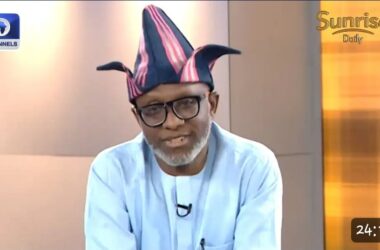The Nigerian Senate on Wednesday began an extensive investigation into the alarming surge of Ponzi schemes across the country, triggered by the recent fall of the digital investment platform Crypto Bridge Exchange (CBEX), which is believed to have swindled Nigerians of over N1.3 trillion.
Lawmakers described the CBEX saga as one of the most damaging financial scams in the country’s history. They linked its success to lapses in financial regulation, noting that the unchecked spread of such platforms now poses a serious threat to national stability. The Senate noted that the aftermath includes rising depression, suicides, and an eroding public trust in legal financial systems.
The motion for the investigation was put forward by Senators Tokunbo Abiru (Lagos East) and Osita Izunaso (Imo West), and received unanimous support from members across political parties.
Presenting the motion, Senator Abiru stated that CBEX took advantage of gaps in oversight by major regulatory bodies including the Central Bank of Nigeria (CBN), the Securities and Exchange Commission (SEC), the Nigerian Financial Intelligence Unit (NFIU), and the Economic and Financial Crimes Commission (EFCC).
“Over N1.3tn was lost to CBEX alone. This is not an isolated case. It is part of a disturbing pattern dating back to MMM in 2016 and MBA Forex in 2020. Nigerians are being robbed repeatedly,” Abiru said.
He further noted the mental and emotional toll of the scam on victims, saying it has led to suicide cases and a growing distrust in the financial system.
Senator Tahir Monguno (Borno North) described the situation as “alarming,” insisting that Nigeria must reinforce its laws to hold fraudsters accountable. “Enough is enough,” he said.
Backing the motion, Senator Sadiq Umar (Kwara North) said regulators had failed the people. “Regulatory bodies must wake up. People trust them to act—not sleep,” he said.
Senator Solomon Adeola (Ogun West) also warned of the rise of unregistered fintech companies operating under the guise of digital innovation. “The CBN must tell us what safeguards exist and how many of these platforms are properly vetted,” he said.
Senator Abdul Ningi (Bauchi Central) urged the National Assembly to exercise its constitutional powers to compel action from oversight agencies. He cited Sections 88 and 14 of the 1999 Constitution as legal backing for a deeper inquiry.
Senate President Godswill Akpabio shared a personal experience, revealing that he too was once defrauded by a Ponzi scheme in Port Harcourt during the 1990s. “History is repeating itself, only now with even more devastating consequences,” he said. “N1.3tn gone—just like that. This is an emergency. Families are ruined. Lives have been lost. We must act swiftly and decisively.”
Akpabio supported plans for nationwide financial education and public hearings, adding: “We cannot sit back while Nigerians are being robbed blind. We must act to prevent more suicides, restore trust, and reclaim our economy from digital predators.”
The Senate has formed a joint committee involving the Committees on Capital Market; Banking, Insurance and Other Financial Institutions; Anti-Corruption and Financial Crimes; and ICT & Cybersecurity.
The lead committee will organize public hearings and is expected to present its findings within four weeks.









